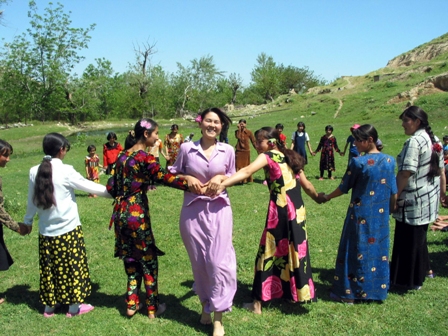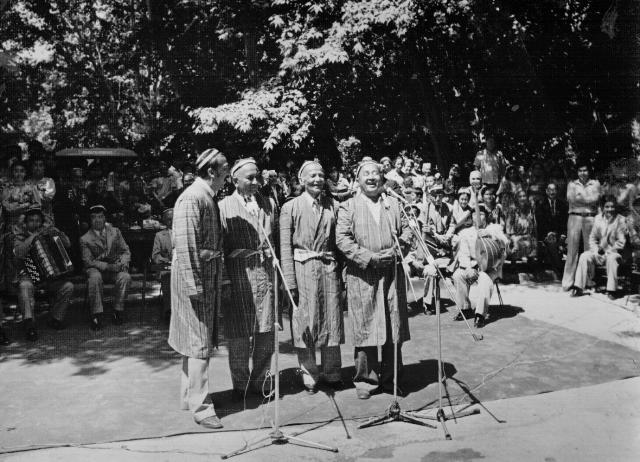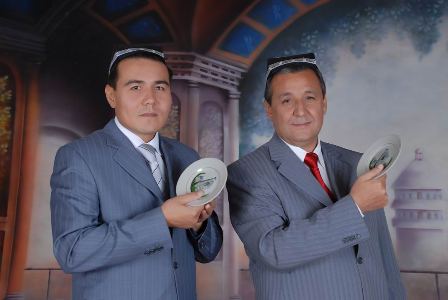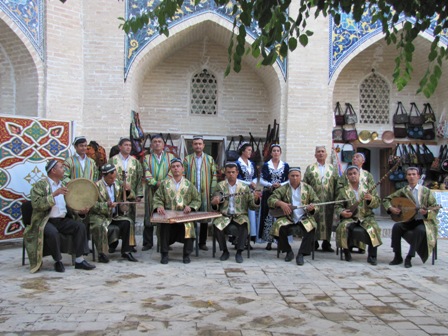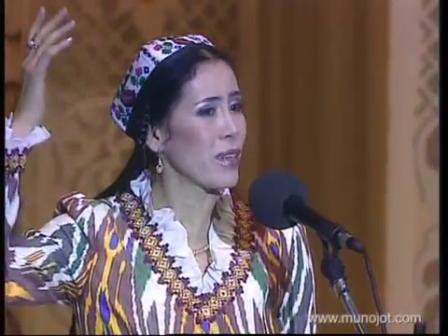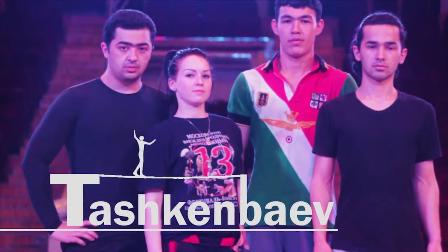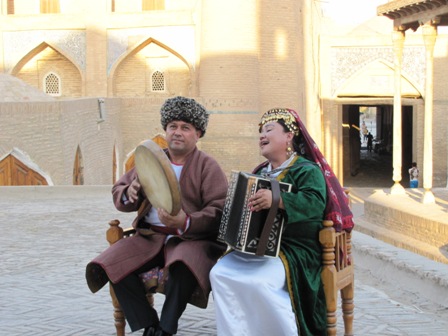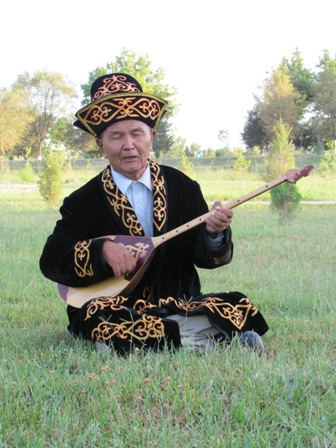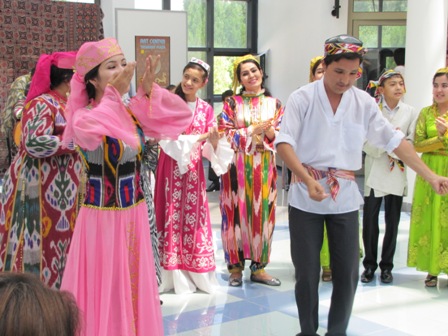Nikoh (Wedding Ceremony)
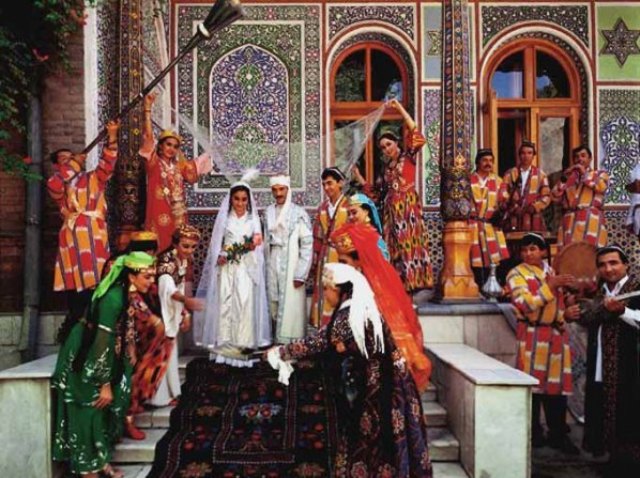
Domain: Social Practices, Rituals and Festive Events
Index Number: 03.01.04
"Nikoh", being Arabic word, means official solemnization of marriage, matrimony, based on Shariah. Festivity on the occasion of wedding bears different names in different places of Uzbekistan, i.e. "nikoh toyi", "ijob toyi", "uy tushirar toyi", "kata yaloq qizartirar toyi", etc.
Wedding comprises of several ceremonies and rituals, such as "uy korar" (or "qiz korar"), "sovchilik", "sep takhlar", "toqqiz berish" (or "toqqiz tavoq"), "qiz oshi" (or "qizlar majlisi"), "kelin tushirish", "baqon tutish", "yuz ochdi", "kelin salom", "chorlari" and the customs associated with them. They have been preserved to our days and are still observed.
Marriage (wedding) initially began with the ceremony of "uy kordi" or "qiz kordi" ("house viewing" or "bride-show"). It is commonly known that in the past wedding took place after getting the consent of parents and it was them, who decided as to whether wedding would be organized or not. This practice is still observable in some areas of the country. As soon as young man comes of age, his relatives begin to look for a deserving girl. Mother and aunt on father's side or one of aunts from mother's side, visit the house of the girl they liked. They come "as guests" and observe the girl, pay attention to cleanness and orderliness of the house. Then, they send matchmakers to the house of the girl, whom they found suitable. There are two types of matchmakers among Uzbeks, i.e. "big matchmakers" and "small matchmakers". As soon as "small matchmakers" (mostly, these are women), who sorted out the business, come from the house of future bride, "big matchmakers" go to the same house in order to determine expenditures for the forthcoming wedding (as well as bride-money to be paid, which is observable in some places of Uzbekistan). In the majority of places uncles of the groom on mother's side as well as verbally adept "elders" served the functions of matchmakers. Refusal by parents of the bride was expressed by different symbolic signs (such as pouring water to shoes, turning shoes back, etc.), whereby their consent – by offering dainty dishes to the matchmakers.
One of the prominent ceremonies in the wedding system was engagement called "fotiha toyi" (or "kichik toy"; in some places it is called "muborakbod toyi"). During the final visit of the matchmakers usually the day of engagement was officially settled. On the day of "fotiha toyi", which was conducted at the house of future bride, esteemed elderly and oqsoqol of the community were invited, who participated in the ritual of "non sindirish" ("bread splitting"). At the end of "fotiha toyi", based on mutual consent, the day of wedding and engagement was fixed. In the period between "fotiha toyi" and "kata toy" ("big wedding") matchmakers organize such ceremonies and rituals as "tovoq qaytarish", "korpa soldi", "toqqiz", "qiz oshi" (or "qiz majlisi"). As a rule, during holidays and festivities the groom's relatives send presents to the bride.
On wedding day or one day before that day groom's relatives send to the house of the bride specially prepared pilaw or all the items, necessary for cooking it. At the house of the bride festive table is laid and pilaw is offered to the residents of mahalla and relatives. In the majority of cases, on the same day, pilaw is offered at the house of the groom.
On wedding day or one day before that day solemnization ceremony is carried out at the bride's house. The groom usually came with his closest friend and uncle (on mother's side). Imam, after explaining rights and responsibilities of newly married couple, and getting the consent of the bride with a help of her matchmaker, prayed ("hutbai nikoh" – "wedding prayer").
Before the groom took his bride to his house, the following ceremonies and rituals were observed: "kelin yashirar", "tush talashar", "it irillar", "chiroq aylantirar", "kampir uldi", "kampir tush kordi", "soch siypatar", "oyna korsatar", "qol qisar", "toshak toldirar". Interestingly, some of them have been preserved and are observed to present as well. At the house of the groom, after the bride walked around fire three times and entered the house, the ceremonies of "bosaghadan tavob olish", "toy ahliga salom berish" were performed. One day after the wedding, the ceremonies of "bet ochar", "kelin salom" were carried.





